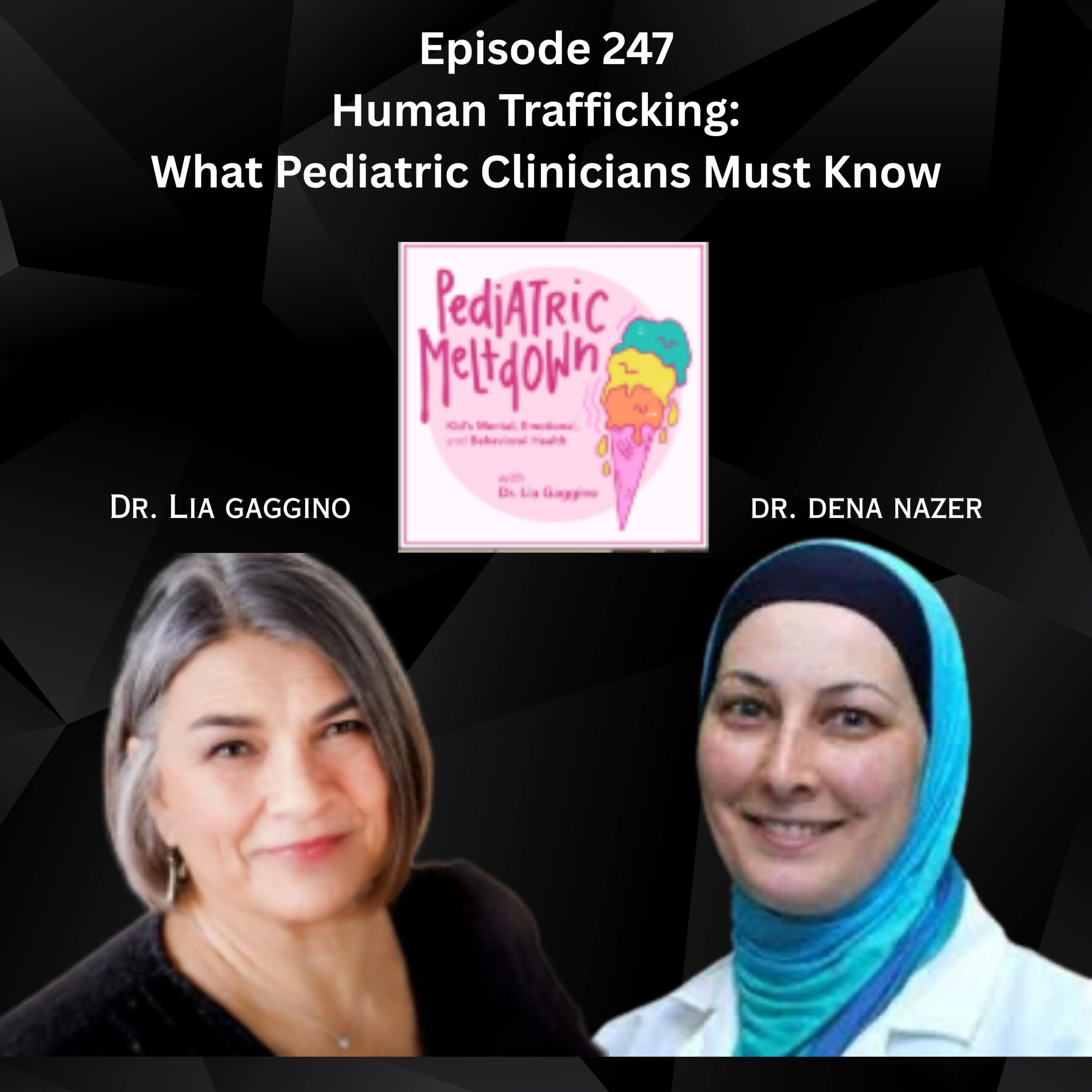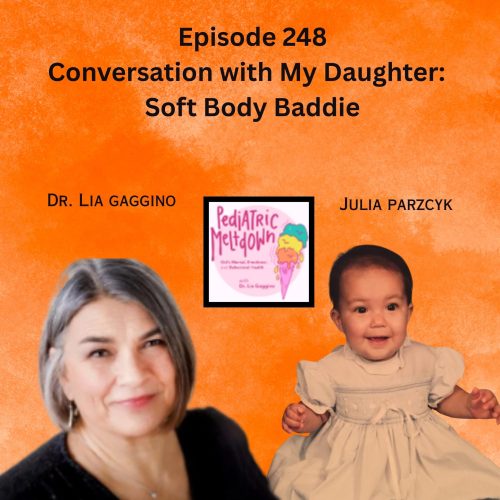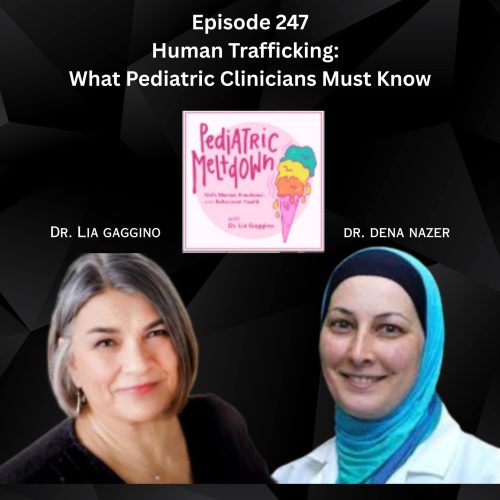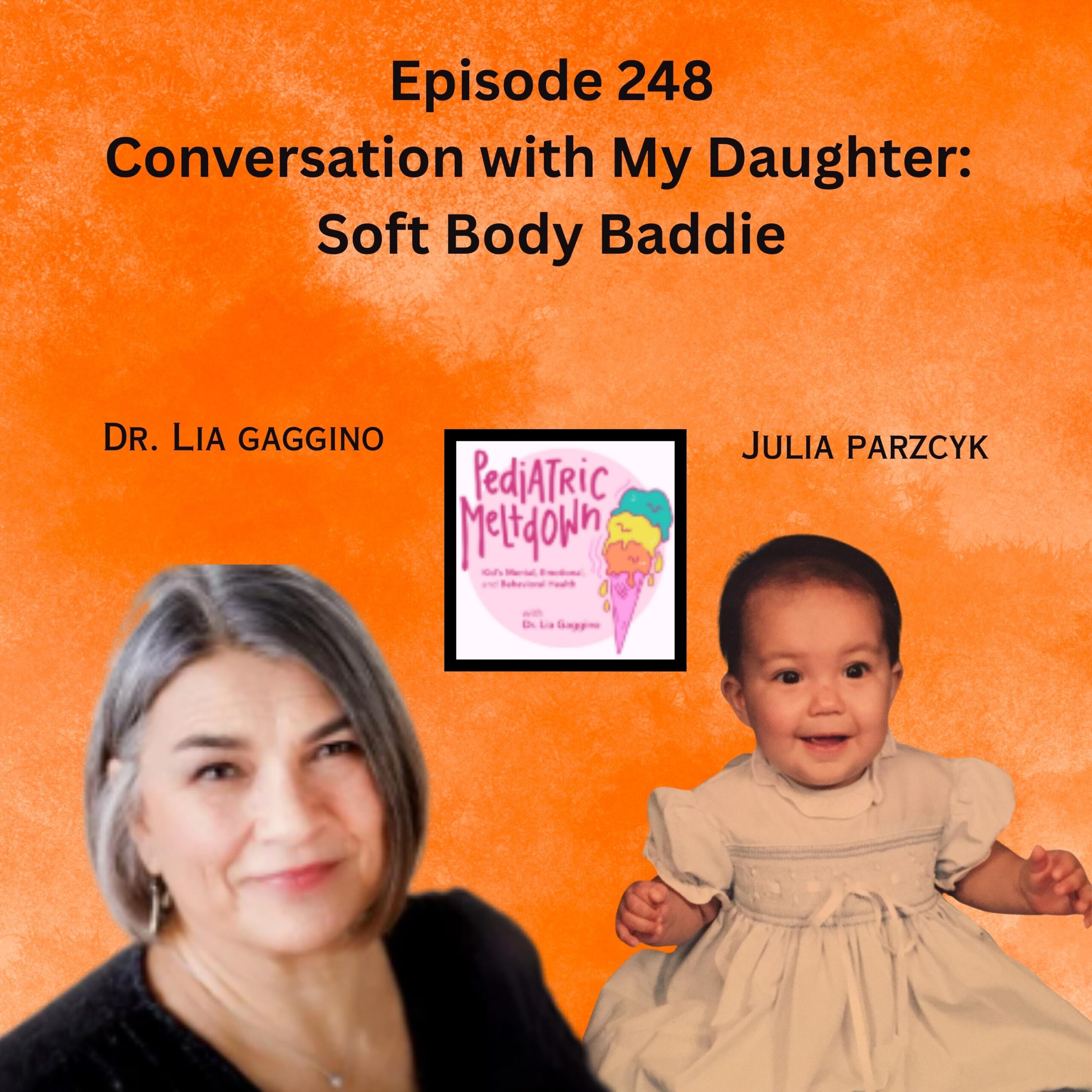Human Trafficking: What Pediatric Clinicians Must Know
Have you ever considered that victims of human trafficking might be walking into your clinic, hidden in plain sight, longing for someone to notice their silent signals?
In this episode of Pediatric Meltdown, host Dr. Lia Gaggino sits down with Dr. Dena Nazer , a leading child abuse pediatrician, to dispel widespread myths and expose the heartbreaking realities of child trafficking. They dive deeply into what human trafficking truly looks like, why language and empathy shape outcomes, and how pediatricians can recognize and respond to red flags—even when victims don’t or can’t ask for help. If you’ve ever wondered how to protect the most vulnerable or questioned your own role in advocacy, this conversation mixes expertise and actionable strategies you can use today.
Don’t miss this essential episode—sometimes the most critical intervention is simply being prepared to see what others overlook.
[00:00 – 05:09] Beyond Kidnapping: The Everyday Reality of Child Trafficking
- Media Myths: trafficking is not always dramatic kidnappings—many victims are exploited by someone they know, sometimes in their own homes.
- Defining human trafficking per US federal law: for children under 18, any commercial sexual act (anything exchanged for perceived value) is trafficking, regardless of force, fraud, or coercion.
- Labor trafficking in children does require proof of force, fraud, or coercion, unlike sex trafficking.
- Children cannot legally consent to commercial sexual acts, a fact often misunderstood by practitioners.
[05:10 – 12:31] Recognizing Vulnerability: Victims, Prevalence, and Persistent Myths
- All children, regardless of socioeconomic status or geography, can be victimized; not just those from impoverished or unstable backgrounds.
- Adolescents are particularly vulnerable due to developmental, social, and neurological factors—especially girls, though all genders are at risk.
- The covert nature and underreporting of trafficking, with true prevalence grossly underestimated—actual victims far exceed documented cases.
- Practitioners should avoid assumptions about victim profiles and recognize that trafficking does not discriminate by background or location.
[12:32 -31:06] Language, Reporting, and the Power of Empathy
- There is an impact of language, advocating against terms like “prostitute” or “modern day slavery,” as they distort public perception and can harm survivors.
- There are nuanced preferences between “victim” and “survivor,” emphasizing respect for self-identification.
- Addresses mandated reporting: outlines state-by-state differences, reminds clinicians to know their local laws, and suggests erring on the side of caution when in doubt.
- Discusses the complexities of reporting and intervention with 18+ patients, promoting support over “rescue,” and collaboration over dictating solutions.
[31:07 – 42:06] Identification, Patient Support, and Multi-Agency Collaboration
- Red flags in clinical settings: domineering non-parental adults accompanying children, delayed care-seeking, lack of address knowledge, repeated STIs, or signs of fear and withdrawal.
- Ways to build trust and elicit disclosures: prioritize safety, establish boundaries about reporting, and use risk-factor-based screening questions.
- Trauma-informed care—responding with empathy, validation, and minimal dramatization—to avoid re-traumatizing patients.
- Connect with local Child Advocacy Centers and understanding local resources and procedures before a crisis arises.
[42:07 – 55:46] Dr. G’s TakeAways
Additional Resources Mentioned
- https://mychildrenschildren.com/my-childrens-children-name/
- https://mychildrenschildren.com/better-is-good-incremental-steps-forward/
- Human Trafficking Hot Line: 888-373-7888 https://humantraffickinghotline.org/en/contact
- Child Advocacy Center map: https://www.nationalchildrensalliance.org/cac-coverage-maps/
- National Child Traumatic Stress Network https://www.nctsn.org/what-child-trauma/traumatypes/sex-trafficking/about-child-sex-trafficking
Here are some more episodes you may like
https://pediatricmeltdown.com/episodes
- Raising Good Citizens Through Conscious Parenting
- Immigrant Children and Families
- Preventing Youth Suicide
- The Art of Medicine
Tweetable Quotes:
“Most of the victims share this exploitation that it’s one person exploiting another person, for the purpose of sex, labor, or even both. And they all share the loss of freedom.”… Dr. Dena Nazer on the loss of freedom
“It’s more about empowering them, supporting them, collaborating with them, helping them be involved in their healthcare… versus just throwing things at them and dictating how you want them to be helped.”…Dr. Dena Nazer on how pediatricians can help
**TRANSCRIPT AVAILABLE UPON REQUEST**
SUBSCRIBE & LEAVE A FIVE-STAR REVIEW and share this podcast to other growing entrepreneurs!
Get weekly tips on how to create more money and meaning doing work you love and be one of the many growing entrepreneurs in our community. Connect with me on LinkedIn; https://www.linkedin.com/groups/12656341/ or on Instagram or our website at www.lifeaftercorporatepodcast.com .







